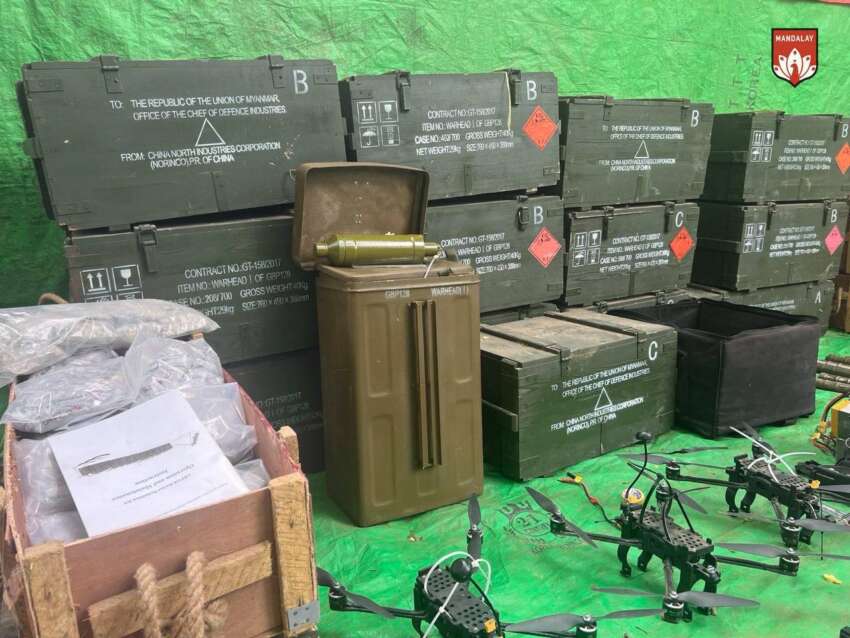
Military analysts and weapons experts at Tactical Raptor 2.0 have revealed clear evidence that China’s state-owned Norinco arms company is supplying weapons and ammunition to the terrorist military council. The evidence emerged after the People’s Defense Force (Mandalay) and allied forces captured military council camps in Mandalay Region, where they discovered weapons and ammunition supplied by the Chinese state-owned arms manufacturer Norinco.
The captured military equipment from council camps in Thanyinkone village in Mattaya Township, and Thayet Kine and Myakantha villages in Patheingyi Township included Norinco-manufactured mine clearing equipment, GBP128 Warhead combat engineering devices, and Mine-clearing line charge (MCLC) systems used for clearing minefields. These mine clearing devices are the same type used by the Chinese military. The discoveries provide clear evidence of direct weapons support from the Chinese government to the military council.
China North Industries Group Corporation Limited (Norinco) is a defense manufacturing company that produces and sells weapons and ammunition internationally. It is one of the world’s largest arms manufacturers and is owned by the Chinese government. The company primarily operates defense-related projects both internationally and within China. Norinco has been involved in selling weapons in controversial international and civil conflicts, with regular customers including unstable nations like Pakistan, Zimbabwe, Congo, and Venezuela.
The company is currently supplying military equipment to Russia in the Ukraine-Russia war. In the Israel-Palestine conflict, Palestinian Hamas forces have used thousands of Norinco-manufactured rifles in attacks against Israel. The company has also sold missiles to Iran. The United States government has imposed successive sanctions on Norinco for supplying weapons to authoritarian regimes and terrorist groups. A revolutionary force commander commented that China needs to stop Norinco from supplying weapons to Myanmar’s military council, warning that otherwise there would be no reason for revolutionary forces to protect Chinese business interests in Myanmar.



